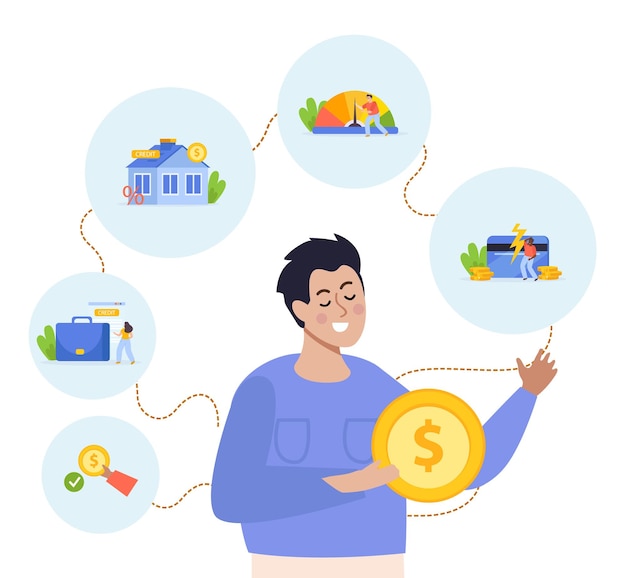Six Alternative Methods to Borrow Money at Lower Costs Compared to Credit Cards

Many Americans are increasingly relying on credit cards when they run out of cash, but financial advisors caution that this should be a last resort.
The New York Federal Reserve reports that credit card debt reached a record $1.03 trillion in the three months ending in June. The average interest rate for those carrying a balance has risen to 24.59%, and for new cards, it can go as high as 28.07%, according to Lending Tree.
Interest payments can accumulate quickly, especially if only the minimum monthly payment is made. For instance, with $10,000 in credit card debt at a 24% interest rate, it could take between 11.75 years to pay off the debt with $6,553.58 in interest, up to 29.5 years with $19,332.21 in interest, depending on how the minimum payment is calculated, as per CBS News.
Financial experts suggest exploring less expensive options for short-term liquidity if emergency savings are insufficient. These options include life insurance, borrowing from family and friends, tapping into a 401(k), or taking out a personal loan.
Credit cards can be useful for small purchases that can be paid off monthly. However, if the balance keeps growing, consider these alternatives:
1. **Life Insurance**: Universal or whole life insurance often includes a cash value feature, allowing for a tax-free, low-interest loan while keeping your money invested. This process is quick, typically taking only a few days to deposit into your account. The only cost is the interest rate, and repayment is flexible.
2. **Family and Friends**: Borrowing from family and friends can be a viable option. You can even agree on a 5% interest rate and a formal contract.
3. **Home Equity Loan**: These loans use your home as collateral, generally offering lower interest rates and flexible terms. The interest is tax-deductible if used for home improvements. However, obtaining one can take up to two months.
4. **401(k)**: Loans from your 401(k) have lower interest rates, and you repay the interest to yourself. These loans are tax- and penalty-free and do not affect your credit score. Repayments are usually deducted from your paycheck. However, if you lose or change jobs, the loan must be repaid in full, or it will be considered a withdrawal, subject to taxes and a 10% penalty if you are under 59.5 years old.
5. **Personal Loan**: The interest rate on a personal loan depends on your credit score, history, the loan amount, and the lender’s requirements. A personal loan might be preferable to a 401(k) loan if you can secure a low rate. Be aware of potential penalties or fees for early repayment or missed payments.
6. **401(k) Hardship Withdrawal**: These withdrawals do not need to be repaid but are permanently removed from your retirement account. They come with strict rules and require payment of taxes and penalties on the withdrawn amount.